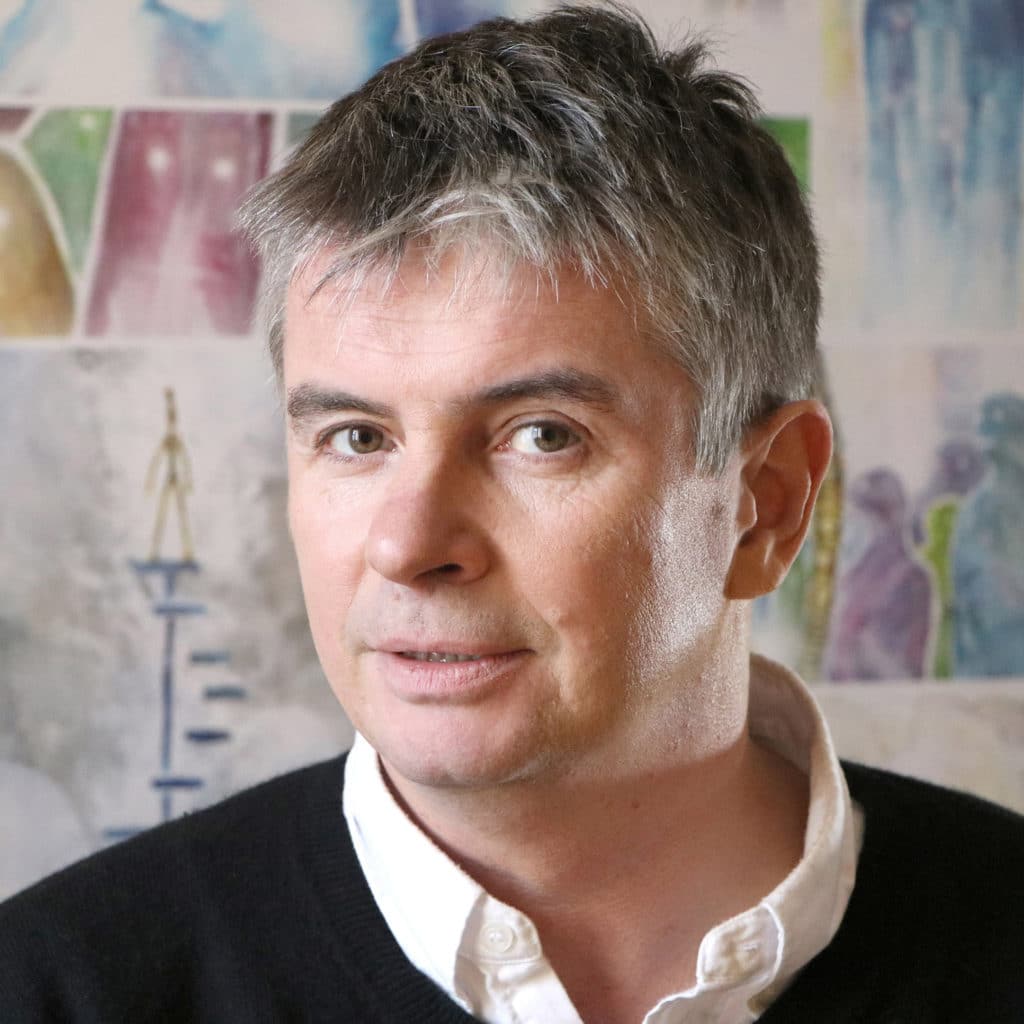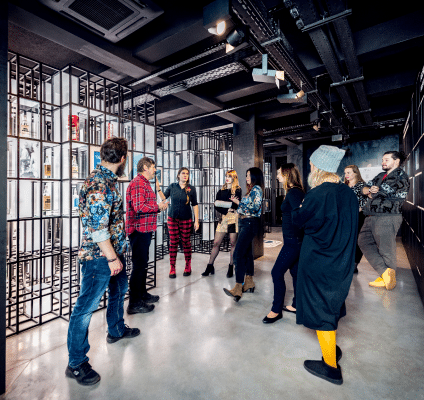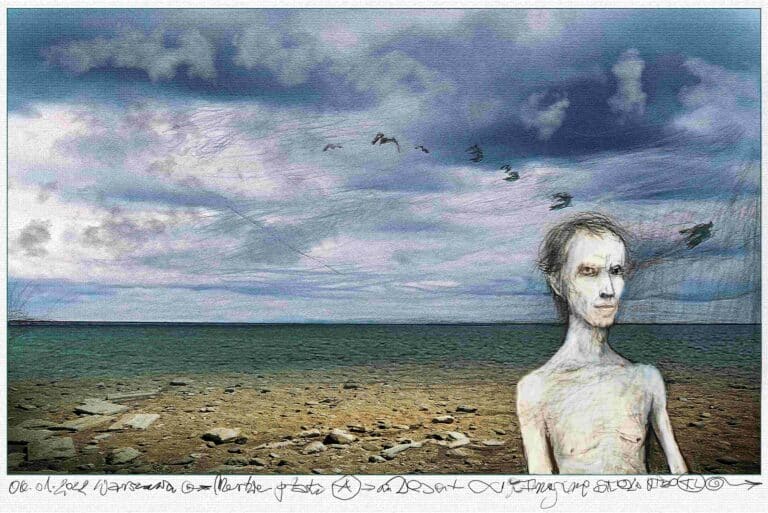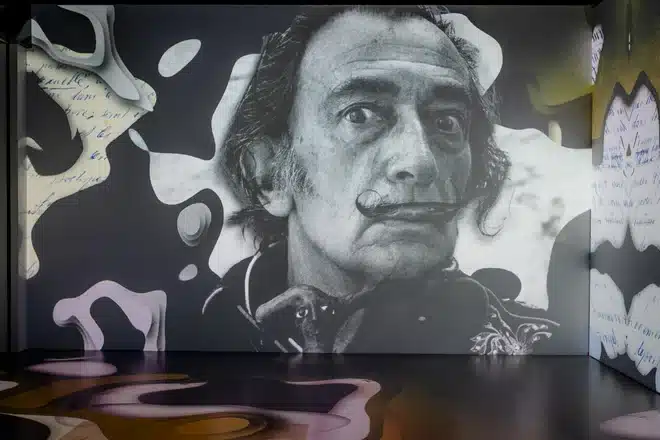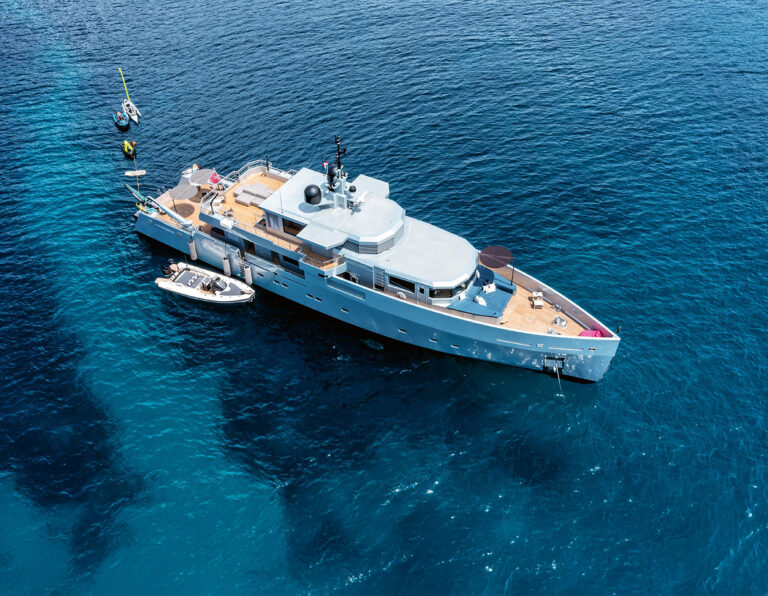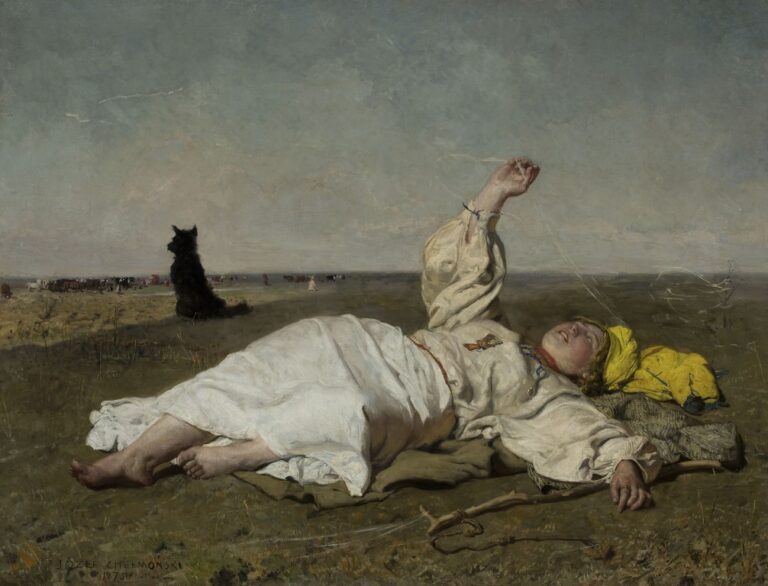To be continued…
Steven Duda is a French publisher and artist – a painter, illustrator, computer graphic designer and an author of graphic novels based in Nancy. He visited Poland for the 4th time this summer and, as he says, it was one of many more visits to come.
When did you come to Poland for the first time and why?
In July 2016. I was traveling with my wife, my daughter and my father. I had been planning this trip for quite some time – we wanted to meet members of our family, especially one of my father’s cousins, who found me through a website, which I created and dedicated to the historical research concerning my grandfather, a Polish Army cavalry captain – Kazimierz Duda. This family reunion brought us a lot of joy. Since then, we stay in touch, visit as much as possible and also continue to explore together the history of our family and the fascinating person of my grandfather, whom I never met, yet feel very connected to.
How did this fascination start?
When I was growing up, in my father’s study there was a framed photo of my grandfather in his cavalry lieutenant’s uniform. His handsome, smiling face, which seemed to stare back at me, was the source of many questions about our origins. Who was this man? Why did we have a Polish surname? Why did I have a British first name? My grandfather died alone in Scotland in 1966. The following year I was born in France. My father, who was born in Edinburgh and grew up in Glasgow, identified as Scottish and had completely disowned his Polish origins. My brother, my sister and I, grew up as French under an Anglo-Saxon influence. My mother, who was French, chose a typically British name for me as a tribute to my father’s Scottish origins (he took great pains not to mention the Polish ones). That was a starting point for my research which became really serious in 2006, when I published a website with military photos of my grandfather and the first war diary he’d written in 1944. I was only able to do that thanks to my father’s colleague – a linguist, who did consultations to read my grandfather’s handwriting and had the diary digitally transcribed. All of this information published allowed my Polish aunt to find us. She was also looking for answers, and even though she had extensive archives of family photos and letters, her options ended with a written notice of her uncle’s death, which she received in 1966.
You’ve been to Poland 4 times in the last 8 years.
This connection changed everything not only in terms of putting together my grandfather’s story (my aunt’s help in translating military documents and correcting the translation of the diary was invaluable) but also that of the Polish army, which is not told in France at all. It’s also how I discovered that I was part of the Polish diaspora during World War II. Now I stay in touch with dozens of descendants of the Polish soldiers all over the world who, like me, are searching for their origins. I’m visiting places in Poland, which my grandfather lived in and knew. And of course – my family grew bigger. It’s truly great to find your people and reconnect. You can make sense of the past, understand yourself and others better and gain new perspectives.
Do you identify as partly Polish now?
I seem to be half Polish-Slav. My grandmother Leocadia, was originally from Kielce, between Warsaw and Kraków. The name Duda is of Lithuanian origin. According to family history, the Dudas came from Samogitia in Lithuania – people who resisted the Christianization of Europe to the bitter end.
You published and illustrated the story of your grandfather in France. It’s in French but it has a Polish title…
“Rotmistrz”. Once I had enough materials, I could finally tell my grandfather’s story in the form of a graphic novel which, given my profession, was something I really loved to do. As I mentioned, the French don’t know the role of the Poles during World War II. At school we learn that the Polish army lost the war very quickly and from then on, Poland is outside of the history taught in France (except when talking about the German death camps located in Poland). I wanted to introduce to the French the story of Polish soldiers of the 1st Polish Armored Division. A particularly dramatic one – mythologically evoking Ulysses, who spent 20 years trying to return to homeland. Rather than putting words into my grandfather’s mouth, I’ve chosen to tell this story from the point of view of an ordinary soldier. The narrator follows my grandfather closely, but also recounts the experiences of other Polish soldiers. This way, I was free in my own artistic expression using a simple pencil, and I could also pay tribute to all those men and women who fought against Nazi Germany, from the first to the last day of the war. The title word “Rotmistrz” is fascinating to me: a cavalry captain’s rank in the Polish army. It refers to the mastery of one’s mount. For me it’s an allegory of a bitter-sweet fate. From September 1, 1939 the Poles spent many years trying to regain control of their destiny. In the case of my grandfather, who became a Rotmistrz in September 1944 after fighting in France and Belgium, it was impossible – condemned by a tumor that took his life in 1966, he was never able to see his parents, brothers and sisters back in Poland. Knowing this and after spending my entire childhood hearing that there was no one and nothing left of the Dudas in Poland, and that the village had supposedly been destroyed, I get a great deal of pleasure and satisfaction every time I see my Polish family. After all these years of research, it’s a kind of a reward, which I value so much.
Apart from the personal connection, what else do you appreciate about Poland?
I really like the Polish way of thinking and acting. It’s very pleasant for me to find myself in a culture like that – strangely enough it just resonates particularly well with me. Coming from a culturally Latin country, I appreciate a certain rigor in Polish behavior and decision-making. In France there’s a laxity in all areas which is particularly exhausting and must be very amusing for a Pole visiting France. /laugh/ I respect cultures different from my own and here there’s a lot I can observe. While visiting Dobieszowice (where my grandfather came from), on an early morning I saw how important the Catholic religion was to Poles, with a church completely packed with parishioners. A situation inconceivable in France. As an atheist I didn’t find it uninteresting; on the contrary I appreciated the cultural contrast. What I find annoying is the image of Poland in France. The French see this country in black and white, as if it were still in the days of the USSR. If someone criticizes France, whatever the field, the French try to show that it’s worse in Poland. Very strange and frankly unbearable comparisons.
You must have a long list of places you got to know in Poland very well. Which are your favorites?
So far, I only visited Warsaw, Kraków, Zakopane and Dobieszowice. I like Kraków for its human dimensions. My grandfather spent his early age there as a student. This year we were discovering the city from the young person’s point of view. We loved it – the non-tourist areas of the city are wonderful. Warsaw remains a magnificent city, with many interesting contrasts between its districts and its history is fascinating. I regret we weren’t able to come at the time of this year’s 80th anniversary of the Warsaw Uprising. We participated in celebrations during our first visit. It was very beautiful and made an impression on me, which I’ll never forget. I was deeply moved.
So, what’s next?
After this trip I felt very inspired – coming to Poland again gave me fresh Polish energy to work on a new graphic novel – a sequel to “Rotmistrz”. I’ve already drawn 53 pages. My grandfather has just arrived in France…

